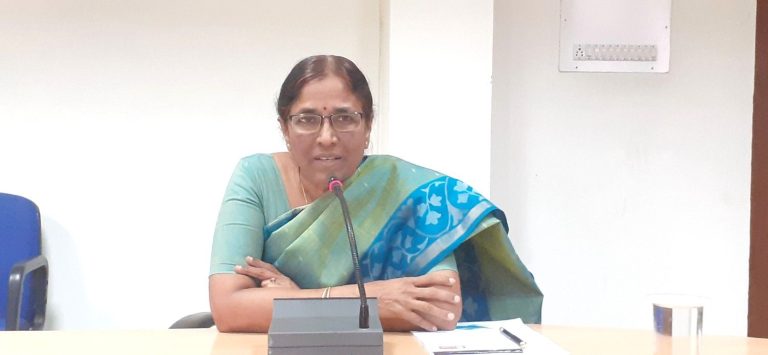
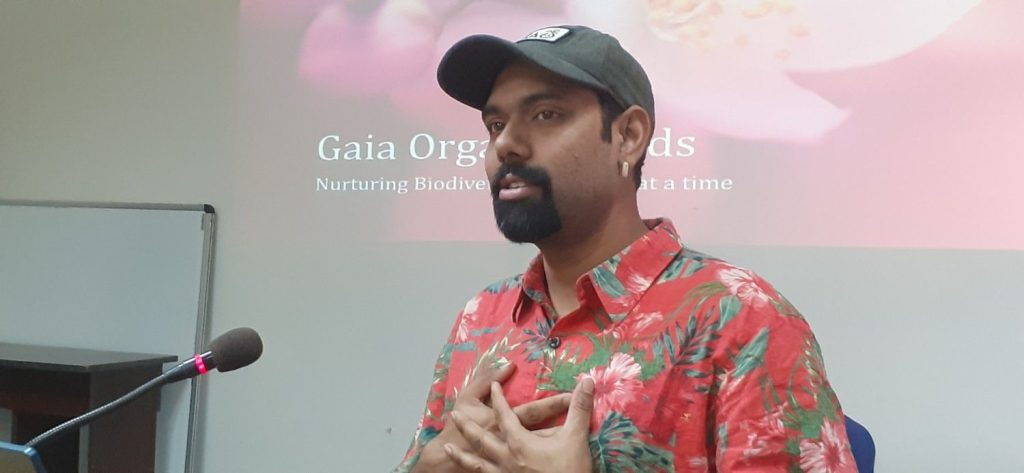
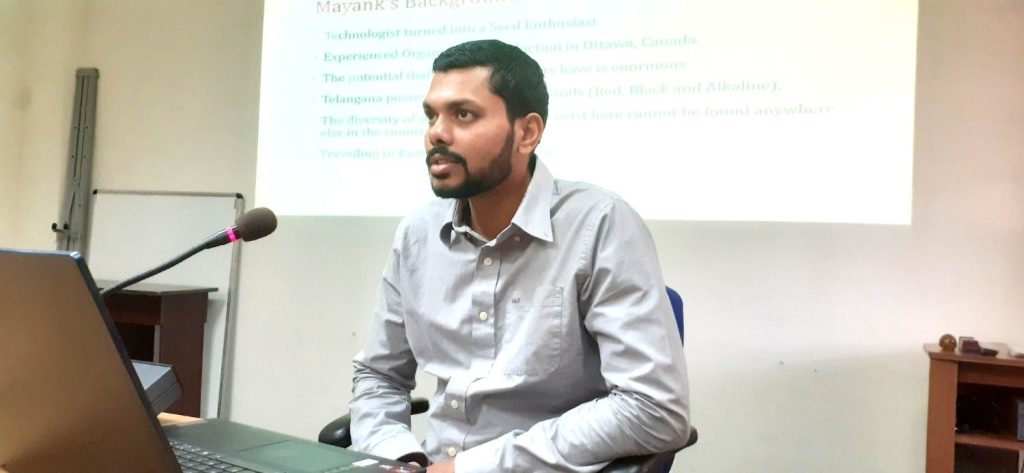
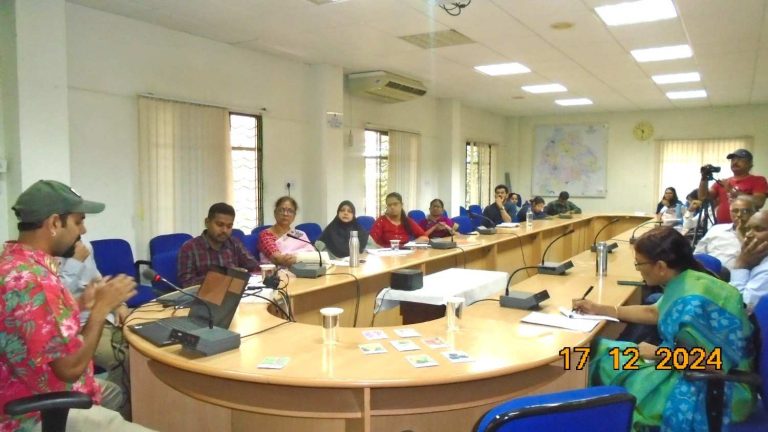
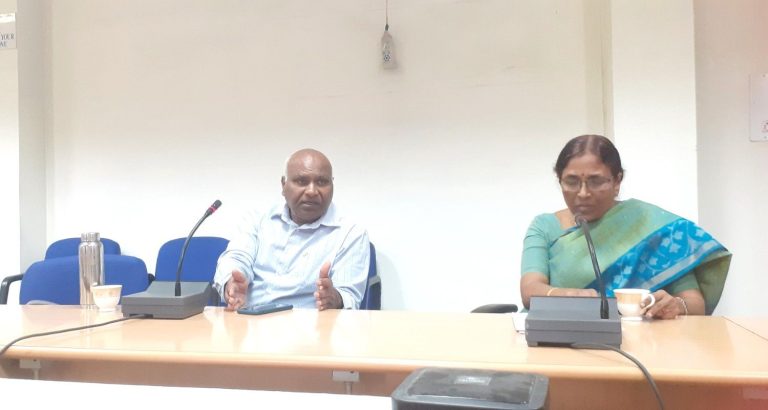
The Division for Graduate Studies (DGS) at CESS hosted a lecture on “Seed Industry in India: Current Challenges” on 17th December 2024 in the First Floor Seminar Hall of the Main Building. The session featured Mr. Manish Kushwaha and Mr. Mayank Kushwaha as speakers and was chaired by Prof. E. Revathi, Director of CESS. Mr. K. Sudheer from Canada facilitated the lecture.
In her opening remarks, Prof. E. Revathi discussed the critical challenges facing the seed industry. She highlighted how hybrid seeds have improved productivity and contributed to food security while stressing the significance of strong seed policies. She emphasized the need for proper seed certification and advocated for organic farming practices, along with the establishment of organic shops to encourage sustainable practices among farmers and consumers. She also underscored the importance of seeds suited to local farming conditions and diverse agricultural systems. She explained the prevalence of cotton farming in the Telangana region and how the policies have addressed at tackling issues such as farmer suicides and the heavy use of pesticides.
Mr. Manish Kushwaha elaborated on the potential of open-pollinated seeds, which are naturally pollinated by wind, insects, or self-pollination. These seeds retain traits similar to the parent plants, promoting self-reliance, food sovereignty, and biodiversity conservation. He contrasted this with hybrid seeds, which are created through controlled pollination of two genetically distinct parent plants. While hybrid seeds offer advantages such as higher yields, uniformity, and resistance to pests and diseases, they also present challenges like non-viability for seed saving, reversion to undesirable traits in offspring, higher costs, dependency on seed companies, and reduced biodiversity. He emphasized the benefits of regionally adapted seeds, such as higher productivity, resilience to climate change, and support for local food systems and biodiversity conservation.
Mr. Mayank Kushwaha shared his journey from a technologist in USA & Canada to a seed enthusiast in India, driven by a passion for preserving biodiversity and promoting sustainable agriculture. In Canada, he specialized in cultivating and conserving open-pollinated seeds, gaining deep insights into seed biodiversity. Bringing this expertise to India, he aims to support soil conservation and rejuvenation efforts, particularly in Telangana & Uttar Pradesh, regions with diverse soils and a dynamic agricultural landscape. His goal is to empower local farmers by introducing resilient seed varieties and fostering sustainable agricultural practices suited to India’s unique conditions.
Dr. Alivelu Kasturi, Dean of the Division for Graduate Studies emphasized the importance of addressing the challenges in India’s seed industry and highlighted urban farming solutions such as terrace farming and rooftop gardens, underlining their potential benefits in urban areas.
The lecture provided valuable insights into the opportunities and challenges in India’s seed industry while advocating for sustainable solutions that promote biodiversity, resilience, and self-reliance in farming.
